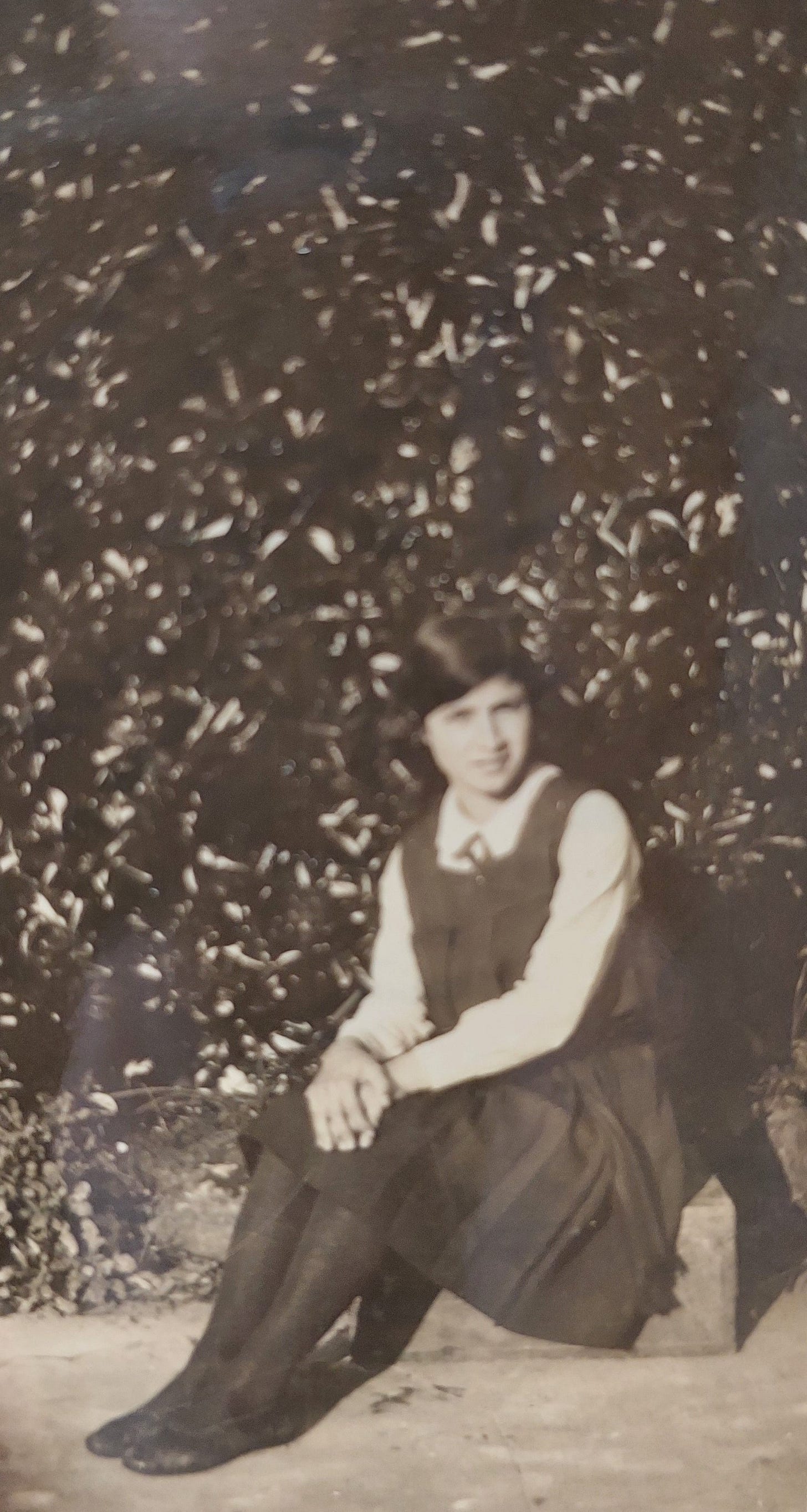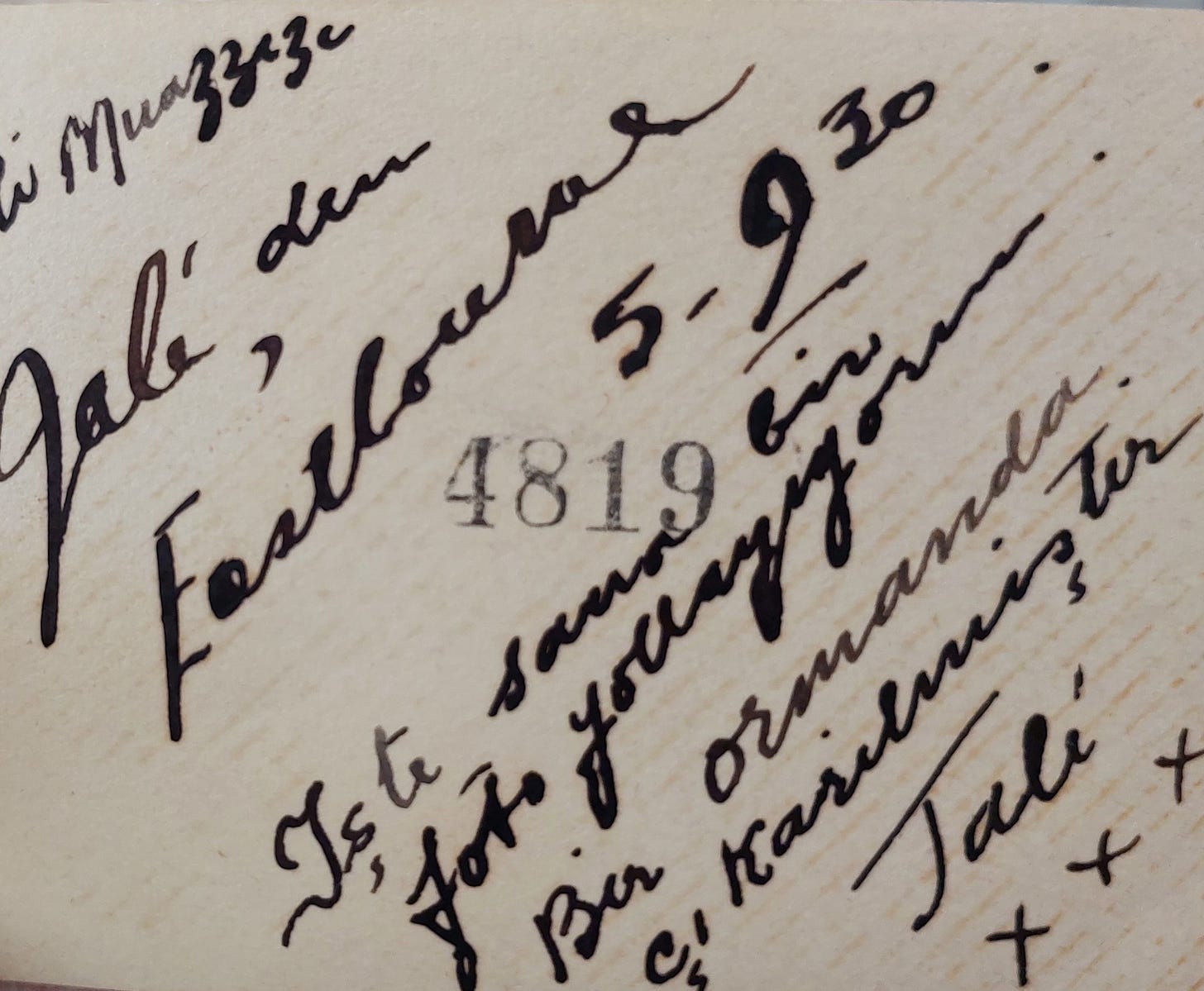rubato (also tempo rubato)
NOUN the temporary disregarding of strict tempo to allow an expressive quickening or slackening, usually without altering the overall pace.
ADJECTIVE performed with rubato.
ORIGIN Italian, literally ‘robbed’.
Oxford English Dictionary
I was born into music. The source was a great woman named Jale Dervish, my grandmother, a renowned piano teacher in my home island of Cyprus. “Teacher of teachers,” she was called, for the generations of educators she had raised.
The smell is of an old person’s home. General yet distinct. What philosophers call singular - neither universal nor particular.
The piano is inseparable from this wisdom tasted through the nostrils. An unrepeatable blend of skin, soap, dust, a recently cooked meal, the fresh, westerly Nicosia breeze flooding the flat and carrying the old-town jasmine, the occasional tangerine. These ingredients conspire, as in breathe together, but there is an original breath, sighed, giving life to them. They are orchestrated, but the conductor is most skilful in erasing herself, because the piano must occupy the centre stage, and without the piano none of it really matters.
We haven’t considered the colours yet. They, and sounds, need to idle backstage. Before hearing, before seeing, you need to smell a piano. Before the notes ringing in your ear and the dance of fingers and keys charming your eyes, the wood must be inhaled, with hints of steel, copper and iron gently rising from the core and seeking attention. Bring your nose closer, wander with it, linger over this magical monster. Let the elements speak their truth. If tempted to press a couple of keys, it’s alright. But much like a good wine, the hand lifting the glass must bow before the indrawn air of the terroir.
Is she sufficiently erased, then, the one who gave this setting its heart, the one who opened her long-gone home to my remembering? Can she evanesce and excuse herself if we let the instrument boast its primal power over her finite scale, in words that will never do justice to the experience of loving this ineffable beast that is music? No, Jale is here to stay. Read ja of jacaranda and le of lent, ja of jaguar and le of lair. Means dew in Persian. In her name, air turns to water, preferably on plants, at dawn. It is a sight. This is how you see music. In a name that promises change. It is hopeful, serves a purpose. And if her name and its heralding of a significant transformation are to be honoured, the piano must do the honouring and we must all be its servants.
Smelling music, seeing music, it is alchemy demystified. Remembering music, thinking it, feeling with it, it is life reenchanted. My grandmother Jale taught me this, not in trying words such as these, but effortlessly, with music touched and heard, and I am hoping to relive and share her transcendent language. This is how we rob time, by remembering the best people in our lives and listening to the best music.



